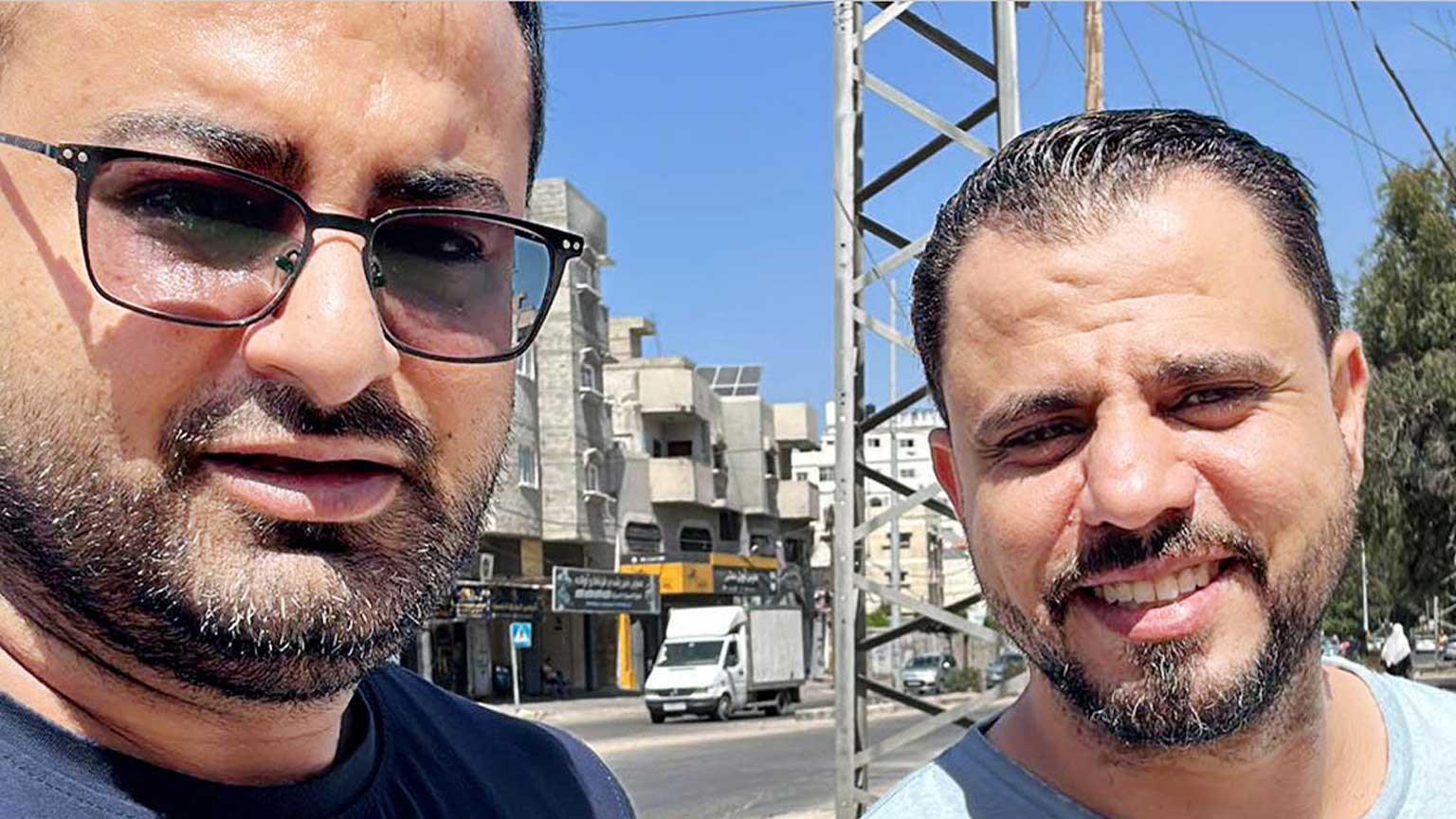The two men covering Gaza
NHK Gaza relies for its coverage on producer Mohammed Shehada and cameraman Salam Abu Tahoun. They have reported on local affairs for over 10 years.
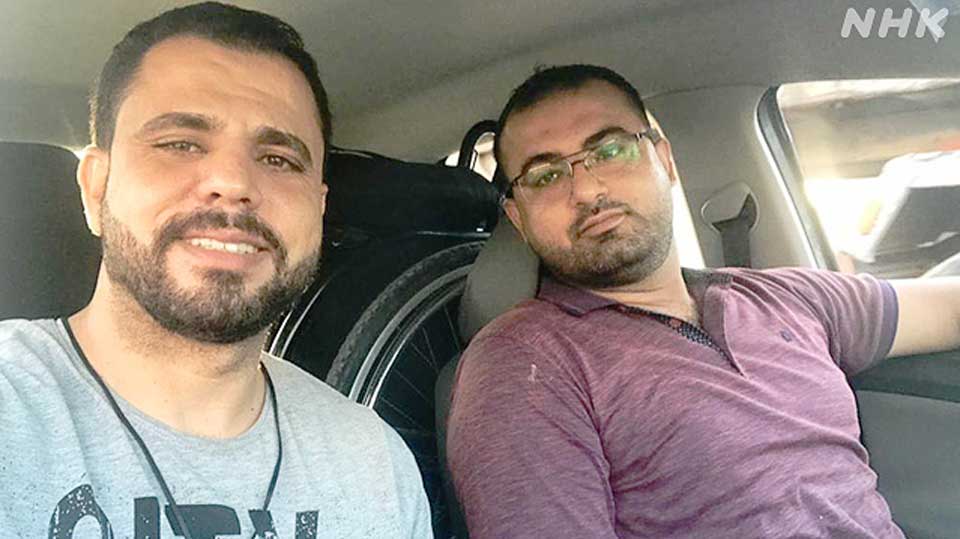
Mohammed broke the news to NHK on October 7 that Hamas had launched a surprise attack on Israel. At 6.42 am, he sent a message saying rockets were being fired into Israel at an unprecedented rate. Hamas claims it launched 5,000 rockets over 20 minutes. Even for Mohammed, a veteran witness to armed clashes, it was an astonishing act.
The two men are fathers to young sons and daughters. They immediately evacuated their families to homes of relatives. Then they returned to the office. They have a policy that in times of conflict, they will keep reporting for as long as the situation allows.
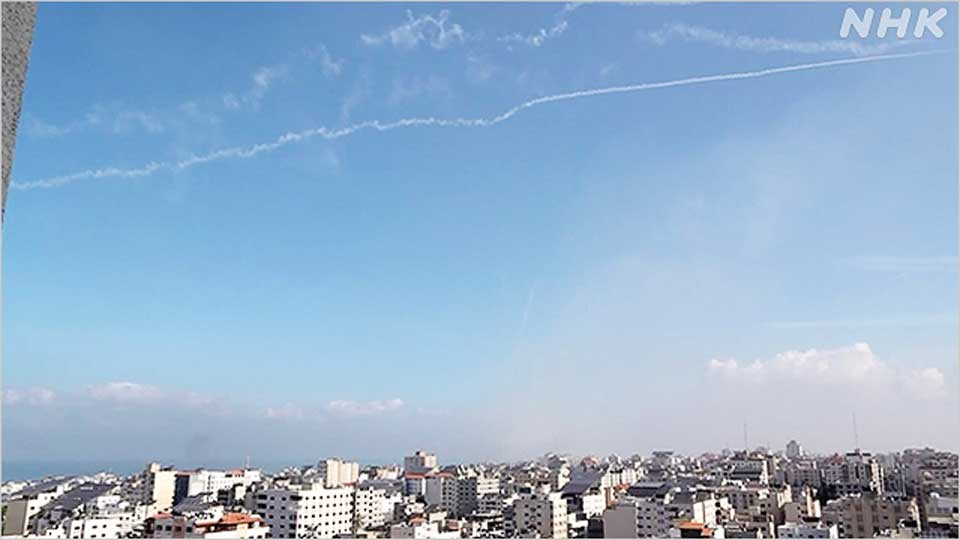
(Photo taken from NHK Gaza office, October 7, 2023)
NHK's 11th floor office provides a panorama of Gaza, the enclave's largest city. It was an ideal place from which to record the Israeli airstrikes. And with no Hamas-related facilities in the building, it was considered an unlikely target. Mohammed and Salam opened the windows wide and kept filming at night. They knew such an action was not completely without risk.
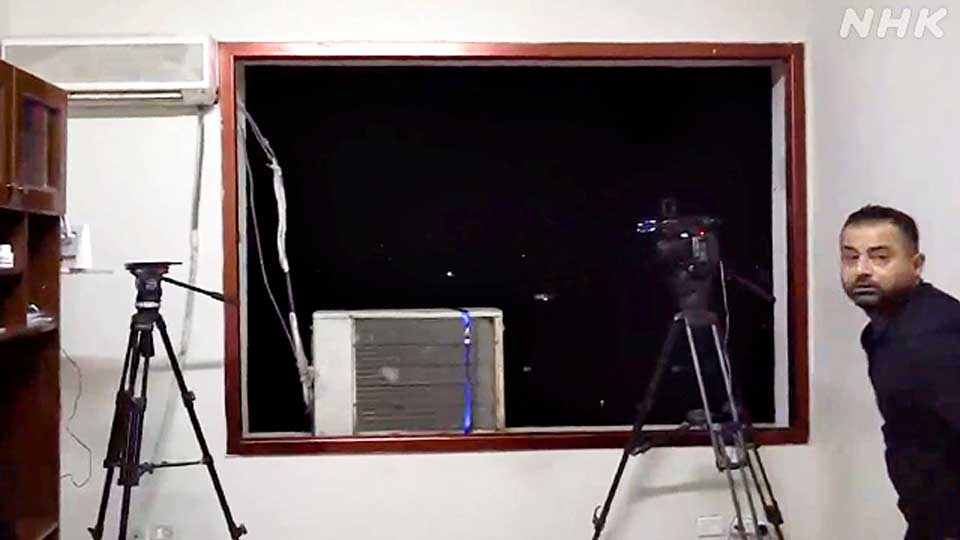
When asked why they didn't stop filming and go home, their reply was short: "We're not going home."
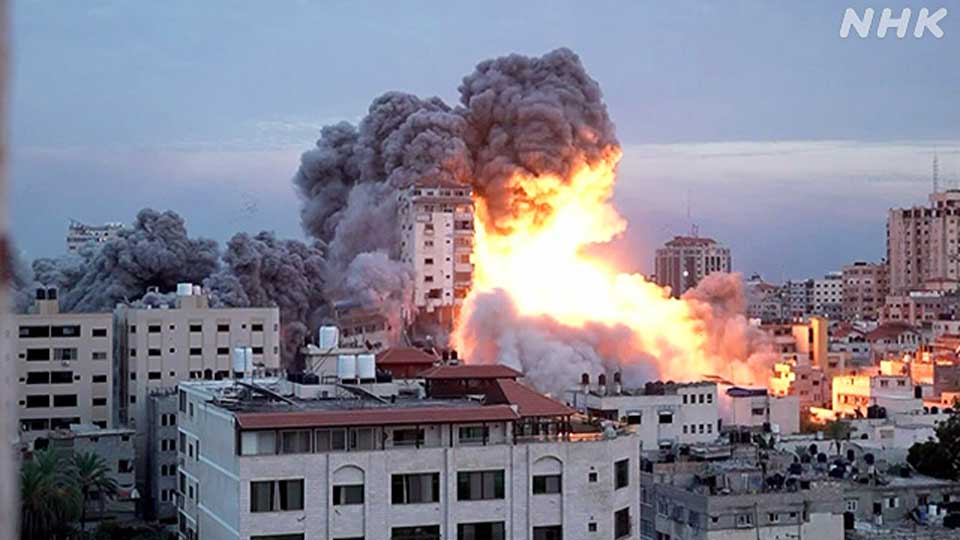
(Photo taken from NHK Gaza office, October 7, 2023)
Endless evacuations
The notion that the Israeli Defense Force, the IDF, would not strike their building was debunked two days after the fighting began. Warnings circulated that the surrounding area was due to be bombed. Mohammed and Salam evacuated with the bare minimum of equipment: cameras, bulletproof vests, helmets, and a laptop for editing.
As the airstrikes intensified, communications with Gaza deteriorated.
On October 12, the IDF issued a further evacuation notice for the area to which cameraman Salam had sent his wife and children. Salam went to move his family once again. Mohammed accompanied him, and filmed the scene: Salam's six-year-old son runs to his father, who hugs him so tightly that he can't speak. The father embraces his children and tries to console them. Joined by his wife Hala, the whole family is crying. From behind the camera, Mohammed calls out "Khalas" ('enough').
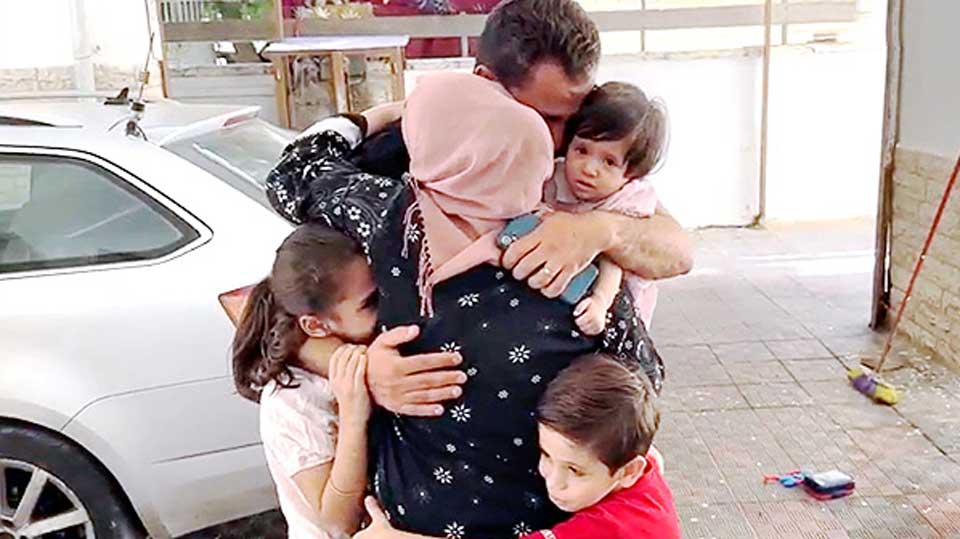
"No place in Gaza is safe."
The next day, October 13, the IDF told the one-million residents of northern Gaza they had to move south. The two men decided to relocate with their families to Rafah, near the border with Egypt. In close to two months, they have been forced to evacuate seven times ― each place of shelter becoming another target for Israeli bombs.
Footage from Gaza
Between blackouts to communications and electricity, Mohammed sent images over a choppy line: a United Nations evacuation facility teeming with people; lengthy queues at the few stores selling bread; children physically hauling water, since tanks cannot be pumped without power.
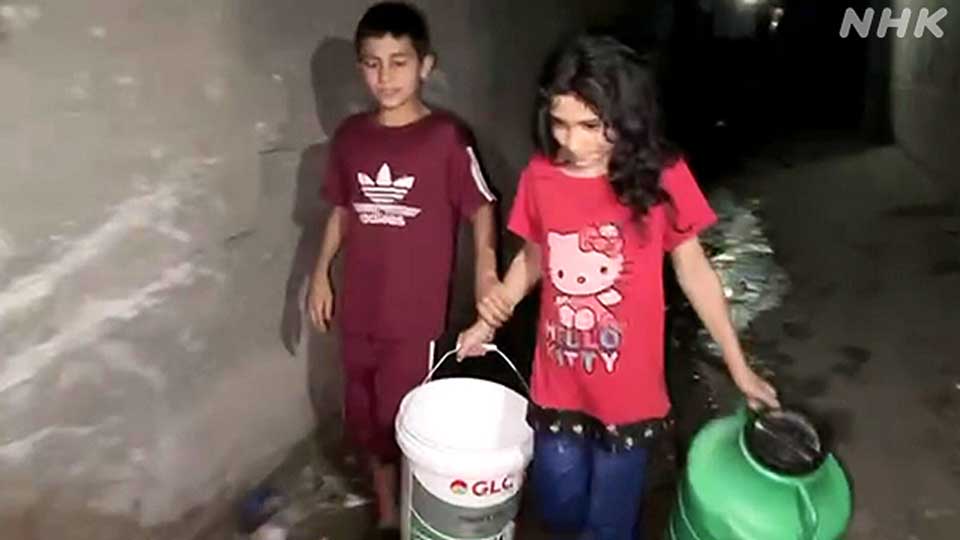
Each image brought the plight of Gaza into clearer focus. The two men are the only means for NHK to learn directly what is happening in the territory.
Mohammed attaches messages to his footage.
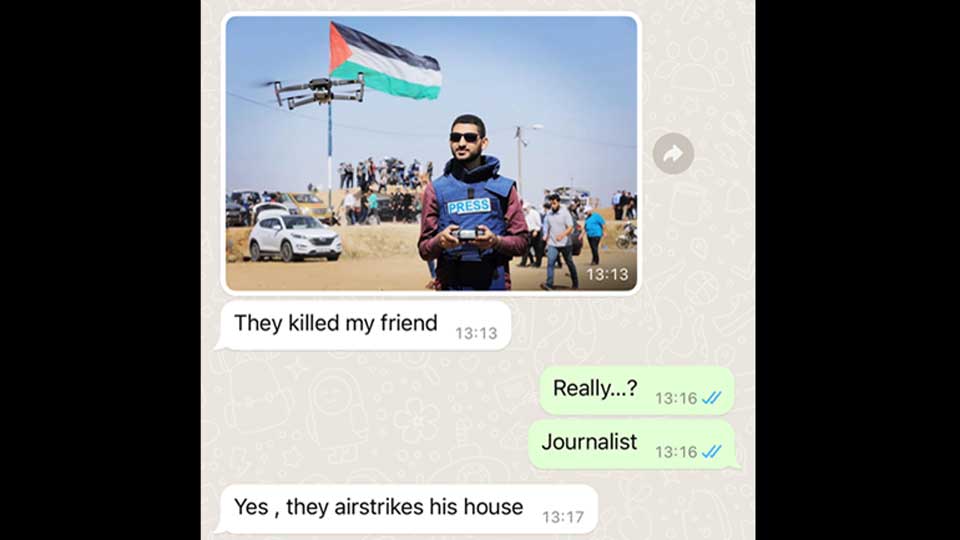
"There are air strikes every 30 minutes."
"The attending doctor at the hospital saw his own child brought in among the injured."
"I've only slept 10 hours in three days."
"I had to wait in line for seven hours to get bread."
"We just can't get water."
"My journalist friend passed away."

"We only had running water for eight hours in a month in Rafah [where they evacuated to]."
"I think my wife is losing her mind."
"This is too much for any human being."
The words strike a universal chord. Mohammed not only reports as a journalist, but as an ordinary citizen.
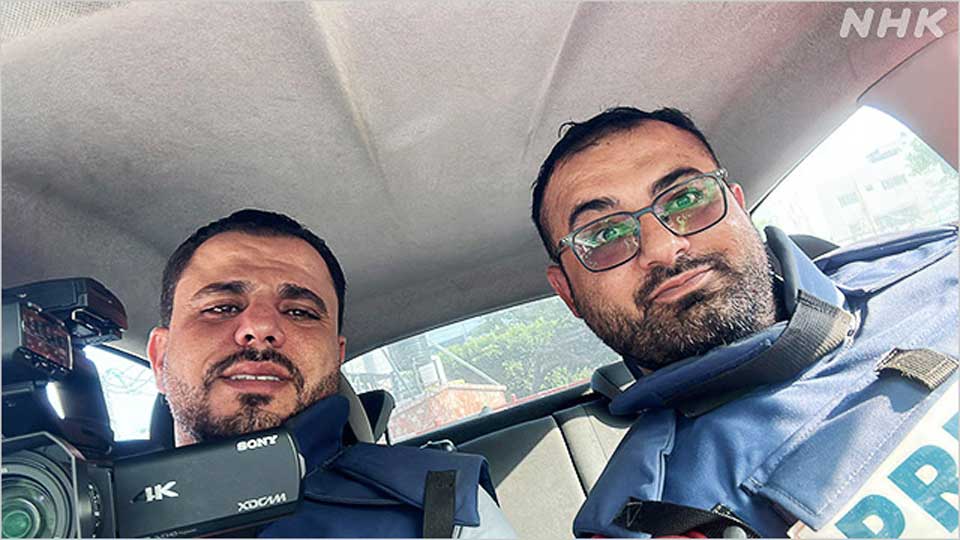
"I have to be strong for my family," he says. "I need to smile, to give hope to my wife and children. We are still weak and scared. But I can't show that to them."
Gaza reporting: A familial commitment
Mohammed's family connection to NHK spans two generations, starting with his father, Abdel Salam Shehada, a skilled videographer. Joining NHK the year after it opened its Jerusalem bureau in 1994, Abdel Salam worked as a cameraman for 14 years. His eldest daughter Bessan then took over as producer, with Mohammed taking over from her since 2012.
Cameraman Salam also apprenticed as Abdel Salam's assistant, beginning his career as a sound technician.
Mohammed has lived with the turbulent Palestinian issue since he was born in 1990. Just three years later, the historic Israeli-Palestinian Interim Agreement, known as the Oslo Accords, was signed between Israel and Palestine.

It was a time when hopes for a new peace began to rise in the Gaza Strip, which was being ground down by the Israeli occupation. An international airport was opened. People believed nation-state status for Palestine was just around the corner.
A photo taken around this time by the then-Jerusalem bureau chief shows Mohammed as an innocent-looking boy.

Things took a turn for the worse in 2000, the year Mohammed turned 10. Conflict between the two sides intensified over ownership of the holy city of Jerusalem. Then came the Palestinian uprising, in what came to be called the Second Intifada.
Hamas took effective control of the Gaza Strip in 2007. And as Israel tightened its grip on the territory, it restricted the entry and exit of people and goods. Gaza was dubbed an "open-air prison." Despite these hindrances, Mohammed found the opportunity to study abroad for two years at a university in France.
Mohammed was able to spread his wings in Europe, experiencing life for the first time in a free and developed country, rather than his blockaded and conflict-stricken homeland. But after his studies, Mohammed returned to live in Gaza. Mohammed told us why he stayed. "My parents still live in Gaza," he says. "As the eldest son, I need to be with them."
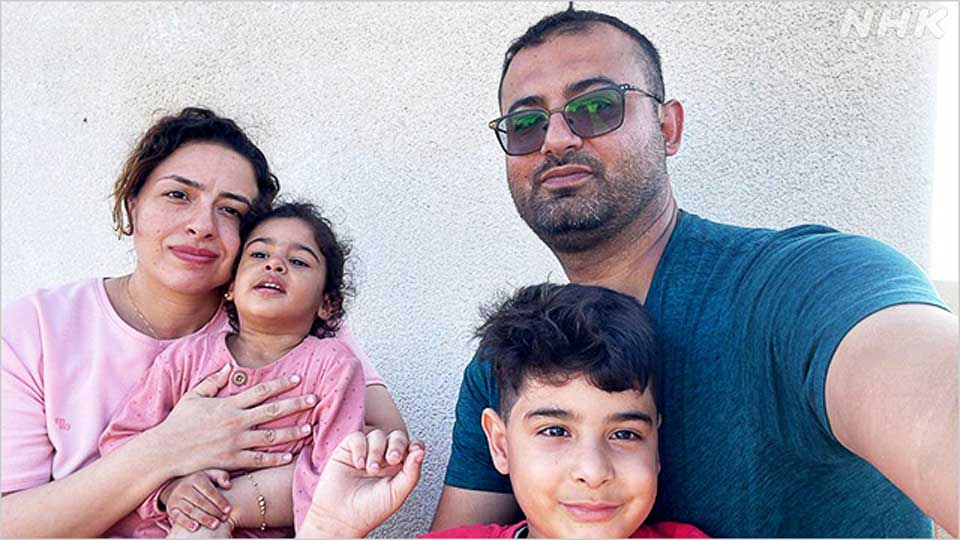
Long history of work with the bureau
As the mainstays of the Gaza office, Mohammed and Salam have supported successive NHK Jerusalem bureau chiefs in many ways.
In 2013, a boycott of Israeli products targeting Israel's continuing occupation of Palestine spread across Europe. People in France were especially involved, including Palestinian immigrants. Surmounting many bureaucratic difficulties, the NHK bureau chief took Mohammed to France to cover the story, due to his Arabic and French language skills. He also took Salam and another producer, Rami. It was the first time for the two men to leave Gaza, and if not for Mohammed's intervention, Rami would not have returned.
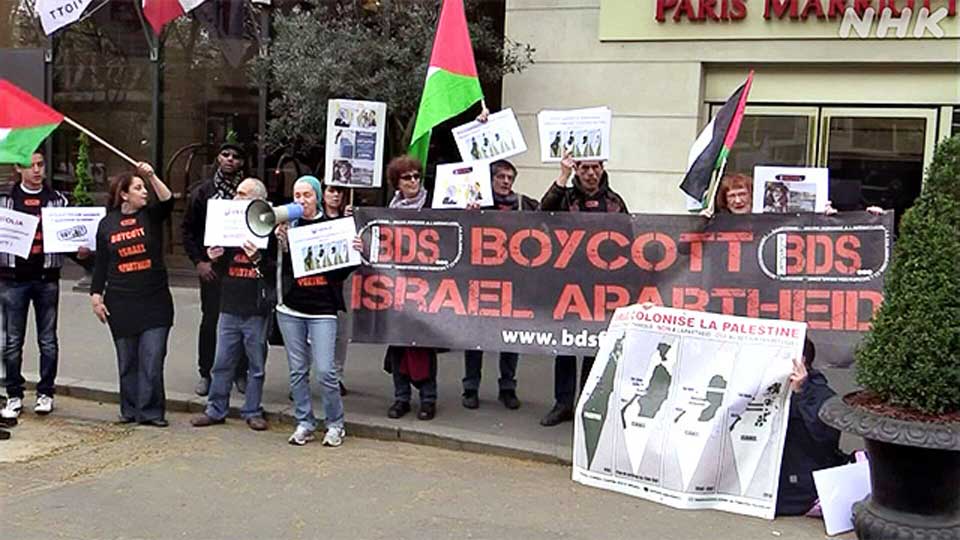
One night after an assignment, the bureau chief was resting in his hotel room when Mohammed knocked on the door. "Rami says he's going to live in exile in France," Mohammed told him. "He doesn't want to go back to Gaza."
The bureau chief was lost for words. He says he admired Rami's willingness to stake his life on a new start in Europe ― and who could deny him the opportunity to escape the crushing Israeli occupation? But after working so long to persuade the authorities to allow the three to leave Gaza, the chief knew he would not get away with letting even one person not return. It crossed his mind that the bureau may even be closed down. An awkward silence followed. Finally, Mohammed said, "I'll talk Rami out of it."
It could hardly have been easy for Mohammed to derail the future hopes of a colleague. But ultimately, Rami agreed to return to Gaza with the team.
The 50-day war of 2014
Mohammed and Salam have played pivotal roles in reporting large-scale clashes between the Israeli forces and Hamas.
Israel's 2014 ground offensive lasted 50 days. The then Jerusalem bureau chief from Tokyo was only fresh to the role. Moreover, he had yet to arrive in the Gaza Strip and had only spoken to Mohammed and Salam over the phone.
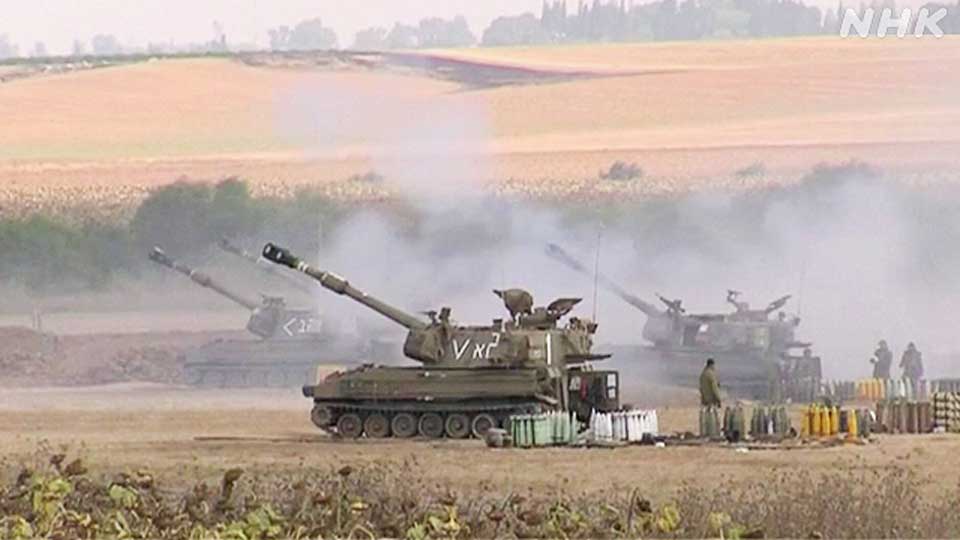
Mohammed and Salam collected stories for him detailing the extent of destruction, as well as interviews with Gaza residents. A month after Israel's military operation began, a 72-hour ceasefire was declared and the bureau chief finally landed in Gaza.
Reporting on taboo 'anti-Hamas' sentiment in Gaza
In 2017, something unusual began happening in Gaza, as popular opinion began to turn against Hamas. People were fed up with the inefficiency and corruption of the 10-year regime, and of living with challenges including electricity supplies being cut to four hours a day. Some residents demanded Hamas leave Gaza. In response, the Islamic group attempted to crush the dissent, forcibly shutting down protests and detaining participants.
Mohammed persisted with his reporting and found a way to cover the story. He located a senior founding member of Hamas and set up an interview with him. "Hamas advocates politics based on Islam, but in the end, it hasn't been able to solve everything," said the senior member boldly, referring to Hamas's loss of public support.
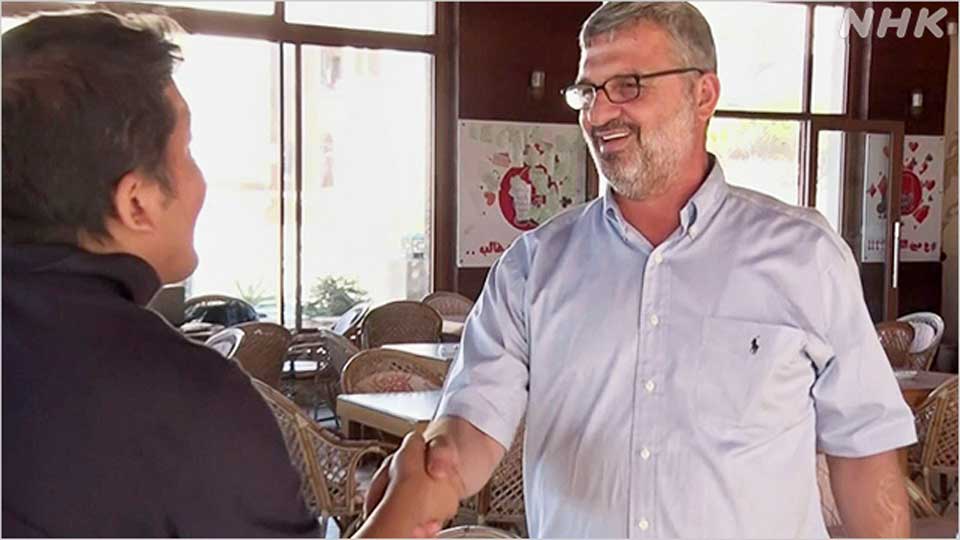
Informing the Japanese people
Even for Mohammed and Salam, who have endured numerous scenes of destruction, the shock of the latest attacks is incomparable to the past: this time, the reporters' lives are on the line, as they are forced to live in evacuation centers and struggle with food and water shortages. Mohammed expresses it this way:

Mohammed
"I usually cover stories about people in difficult situations, but now those people include myself and my family. Journalists, doctors, emergency service personnel ― people who shouldn't be targeted by the attacks ― are finding themselves in situations in which they have no protection."
But Mohammed's motives to continue in his job are clear.
Mohammed
"Without journalists, who else would pass on the messages of the Palestinian people? It is our duty to keep reporting."
On November 10, Mohammed's family was able to evacuate to Egypt. Mohammed has continued to interview and report on what's happening in Gaza.
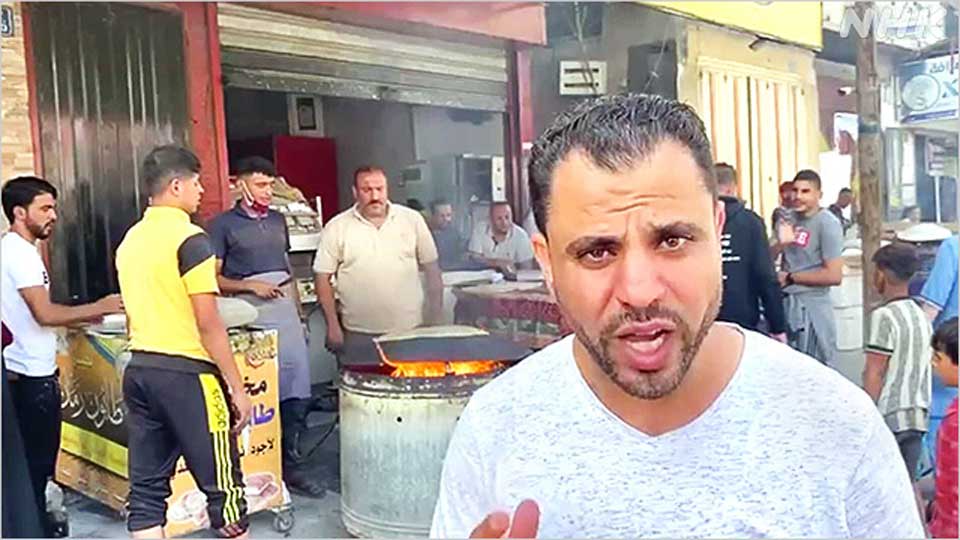
Salam remains in Gaza with his family and continues to shoot video. He spent his 35th birthday in a shelter. During the conflict, his eldest daughter has turned nine, while his second daughter turned one. The two girls are coughing and vomiting due to poor hygiene and lack of food. Salam wants to take them to hospital, but the intensity of the air strikes means he can't get them there. He has been trying to take them to a nearby clinic.
Salam
"If there is a scene at the clinic that conveys the current situation in Gaza, I will record it. As a journalist, it's impossible for me not to record a scene if it cannot be ignored, no matter the situation. I want to convey as much of this reality as possible to the Japanese people."
"We will meet again in Gaza," he says. "Inshallah."
Original reporting by these two men gives NHK and the Japanese people their own eyes on Gaza.

